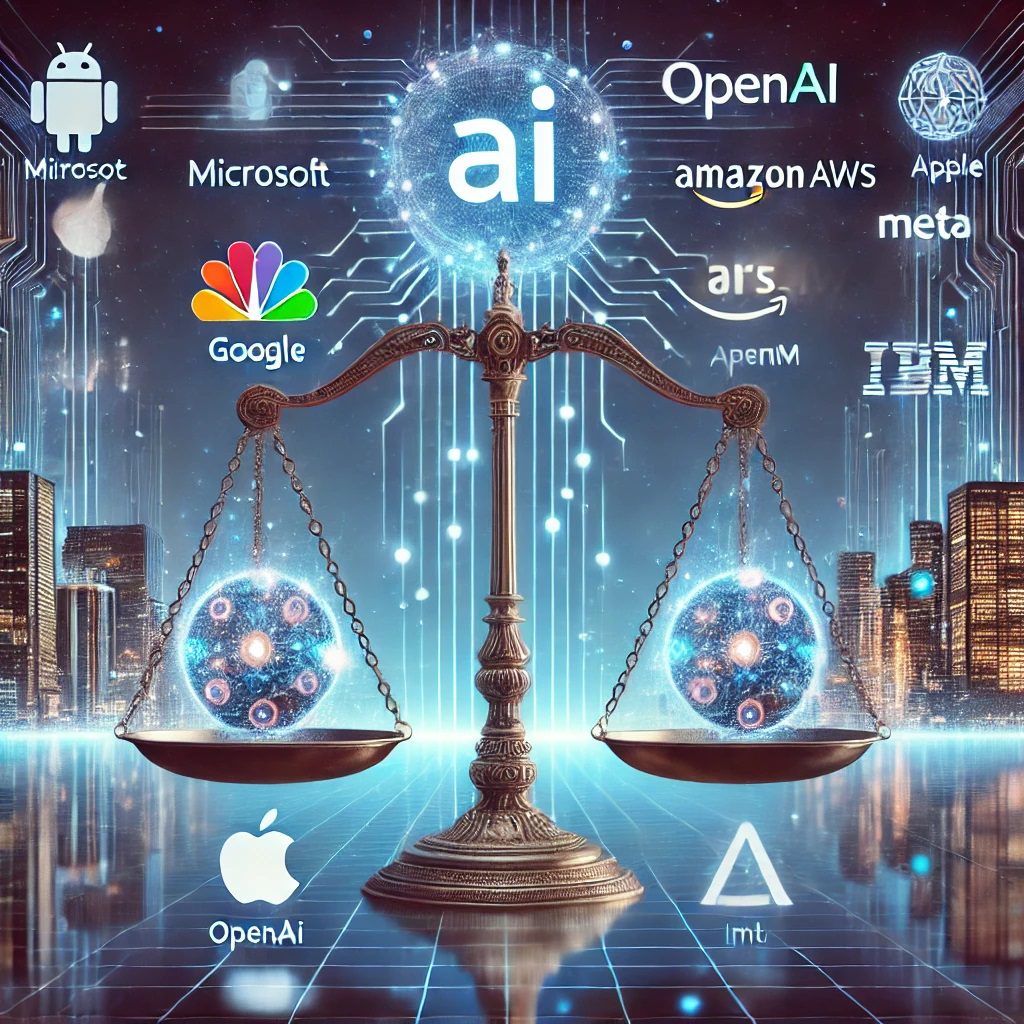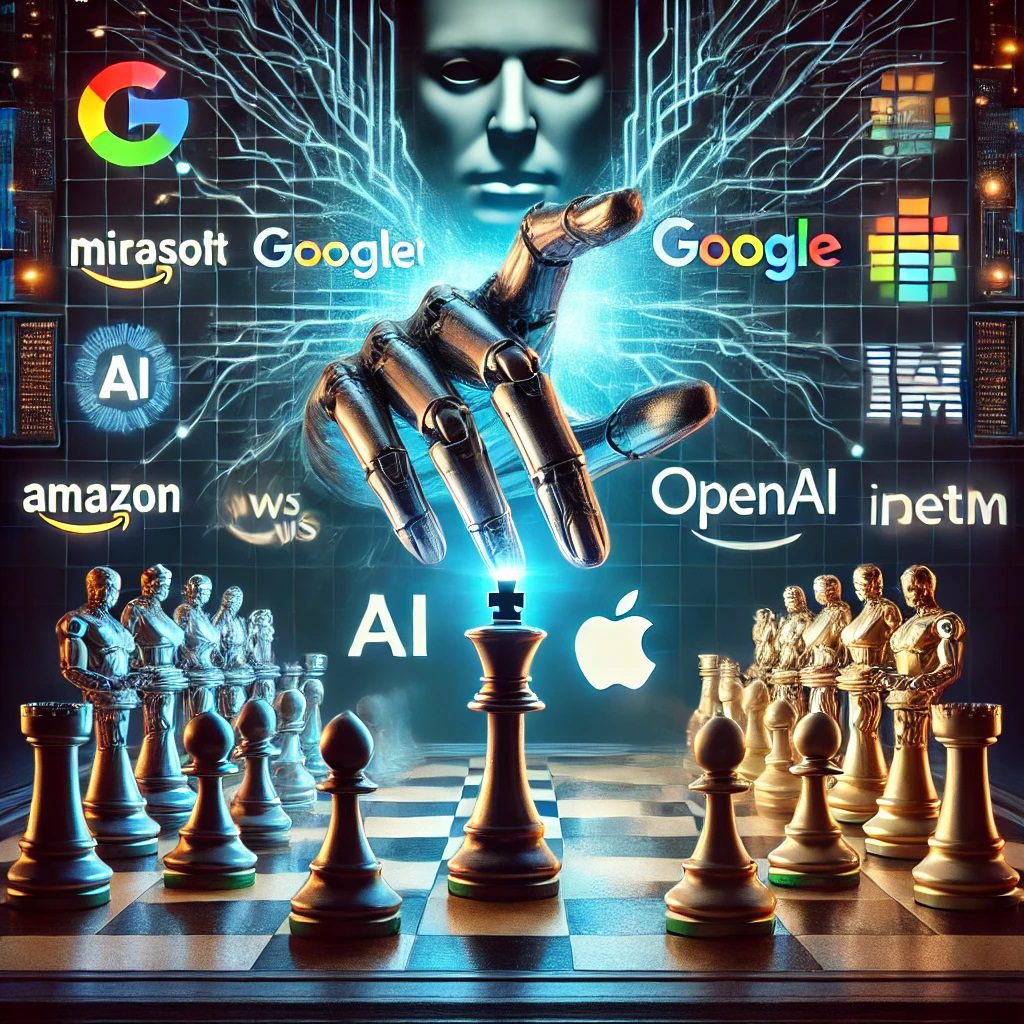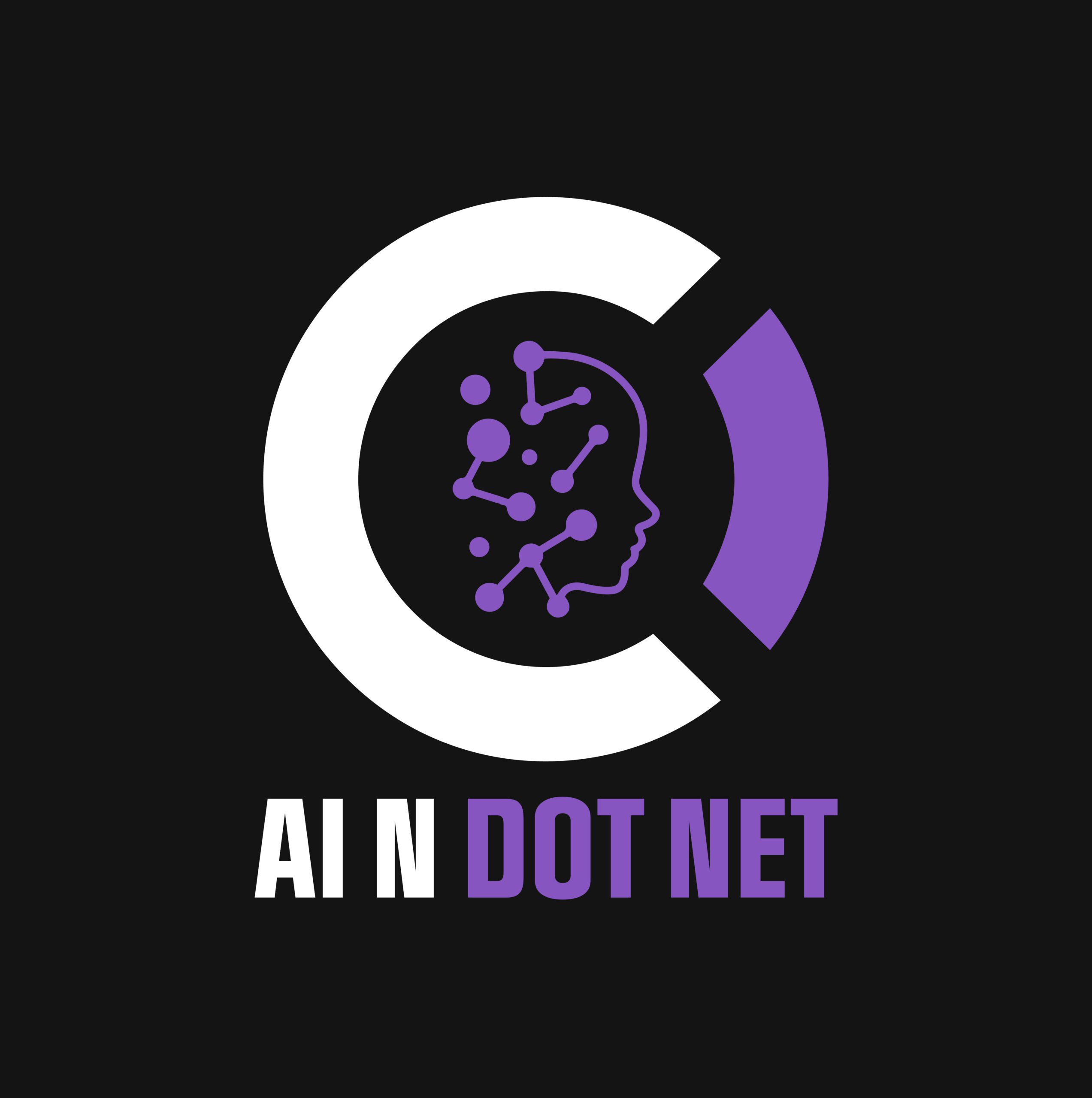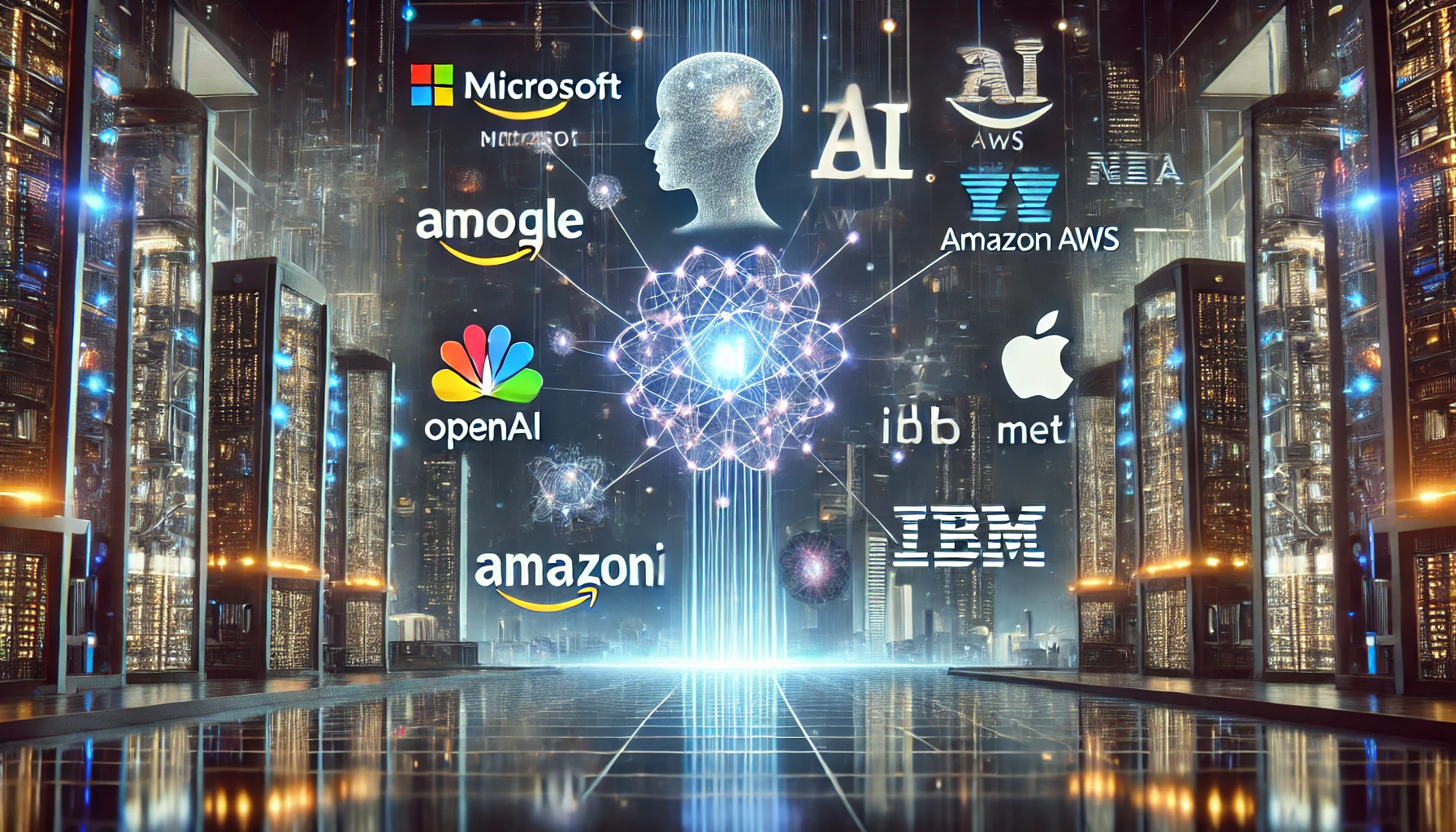Introduction
The artificial intelligence (AI) landscape is evolving rapidly, with a few dominant players shaping the future of technology. While AI innovation is accelerating, concerns about monopolization and lack of competition are growing. Should governments step in to regulate AI powerhouses like Microsoft, Google, Amazon, and Apple? Or do we have enough competition to keep the market balanced?
In this article, we’ll explore the current AI industry, the major players, and whether federal intervention is necessary to prevent an AI monopoly.
Big Tech and Monopoly Investigations

Several tech giants have already faced antitrust scrutiny, and their expanding role in AI raises further questions about market dominance.
- Microsoft AI Monopoly Concerns: Previously investigated for monopolistic practices in the 1990s over bundling Windows with Internet Explorer, Microsoft has since pivoted towards cloud computing and AI. With its heavy investment in OpenAI, Microsoft has a major stake in AI’s future.
- Google AI and Antitrust Lawsuits: Currently under U.S. antitrust investigation for monopolizing search and digital advertising markets. Its AI division, DeepMind, is a leader in cutting-edge AI research and generative AI models.
- Amazon and AWS AI Dominance: Despite its dominance in cloud computing and AI services, Amazon has not yet faced direct AI-related monopoly investigations. AWS controls a large portion of the infrastructure that AI companies rely on.
- Apple AI Market Expansion: While Apple has largely avoided AI monopoly discussions, its deep integration of AI into its ecosystem (e.g., Apple Intelligence for iOS) could eventually attract regulatory scrutiny.
IBM’s Role in AI Development
IBM has been a key AI player for decades, with its Watson AI gaining attention in 2011 for winning Jeopardy!. However, IBM has since shifted its AI focus toward:
- Enterprise AI solutions and cloud automation.
- Quantum computing advancements to support AI processing.
- AI ethics and governance, promoting responsible AI use.
While IBM remains influential, it is not a dominant force like OpenAI, Google DeepMind, or Anthropic.
Who Are the Major AI Players?
The AI market is primarily driven by a handful of companies:
- OpenAI – The leader in generative AI (ChatGPT, DALL·E), heavily funded by Microsoft.
- Google DeepMind – A powerhouse in AI research and search-based AI.
- Anthropic – A major competitor to OpenAI with its Claude AI, backed by Amazon.
- Meta (Facebook AI Research) – Pioneering open-source AI models like LLaMA.
- Amazon AWS AI Services – Dominating cloud-based AI infrastructure.
- Apple AI Integration – Entering AI with privacy-focused device-based intelligence.
- IBM AI Solutions – Focused on AI for businesses and AI governance.
- Chinese AI Companies – Baidu, Tencent, and Alibaba are building competitive AI models.
Is AI Becoming a Monopoly?

While multiple players exist, AI dominance is increasingly consolidating:
- Microsoft and OpenAI AI Partnership: Controlling enterprise AI and cloud AI services.
- Google AI Leadership: Leading in AI-powered search, personal AI assistants, and cloud-based AI tools.
- Amazon AWS AI Infrastructure: Holding massive AI infrastructure and computing power.
- Meta Open-Source AI: Pushing open-source AI to challenge proprietary models.
The concern is not just who owns AI models, but who controls AI infrastructure and data. AI development requires enormous GPU resources (NVIDIA, AMD), cloud computing, and large-scale datasets—most of which are controlled by a few tech giants.
Should the Federal Government Regulate AI?
Arguments for AI Regulation:
- Prevents monopolization of AI infrastructure.
- Ensures fair competition in AI services.
- Regulates AI ethics (bias, transparency, accountability).
- Encourages open-source AI alternatives.
Arguments Against AI Regulation:
- Bureaucracy could slow AI innovation.
- Regulations may favor Big Tech over startups that struggle with compliance costs.
- AI governance is complex—who decides what is “fair AI”?
A balanced approach might involve:
- Regulating AI compute access – Preventing monopolization of AI hardware and cloud resources.
- Mandating AI transparency – Requiring clear documentation on AI decision-making.
- Supporting open-source AI – Providing government funding for open AI projects.
Conclusion
AI is not yet a monopoly, but the market is heading toward consolidation under a few dominant companies. Whether through competition laws, transparency regulations, or AI ethics oversight, some level of intervention may be necessary to ensure a fair and open AI ecosystem.
The key question remains: Should AI power be distributed among private companies, or should governments step in before AI dominance becomes irreversible?
FAQs About AI Monopolies and Competition
Q: What companies dominate AI today? A: Microsoft (OpenAI), Google DeepMind, Amazon AWS AI, Meta AI, and Apple AI are the key players.
Q: Should AI be regulated like other industries? A: AI regulation could help prevent monopolization but must be balanced to avoid stifling innovation.
Q: How can smaller AI companies compete with Big Tech? A: Open-source AI projects, alternative cloud providers, and decentralized AI models could help balance competition.
What are your thoughts? Should AI remain in private hands, or should regulators impose stricter controls?
Want to stay ahead in applied AI?
📑 Access Free AI Resources:
- Download our free AI whitepapers to explore cutting-edge AI applications in business.
- Check out our AI infographics for quick, digestible AI insights.
- 📖 Explore our books on AI and .NET to dive deeper into AI-driven development.
References
FTC Removes Blogs Critical of AI, Amazon, and Microsoft
Disclaimer
We are fully aware that these images contain misspelled words and inaccuracies. This is intentional.
These images were generated using AI, and we’ve included them as a reminder to always verify AI-generated content. Generative AI tools—whether for images, text, or code—are powerful but not perfect. They often produce incorrect details, including factual errors, hallucinated information, and spelling mistakes.
Our goal is to demonstrate that AI is a tool, not a substitute for critical thinking. Whether you’re using AI for research, content creation, or business applications, it’s crucial to review, refine, and fact-check everything before accepting it as accurate.
Lesson: Always double-check AI-generated

